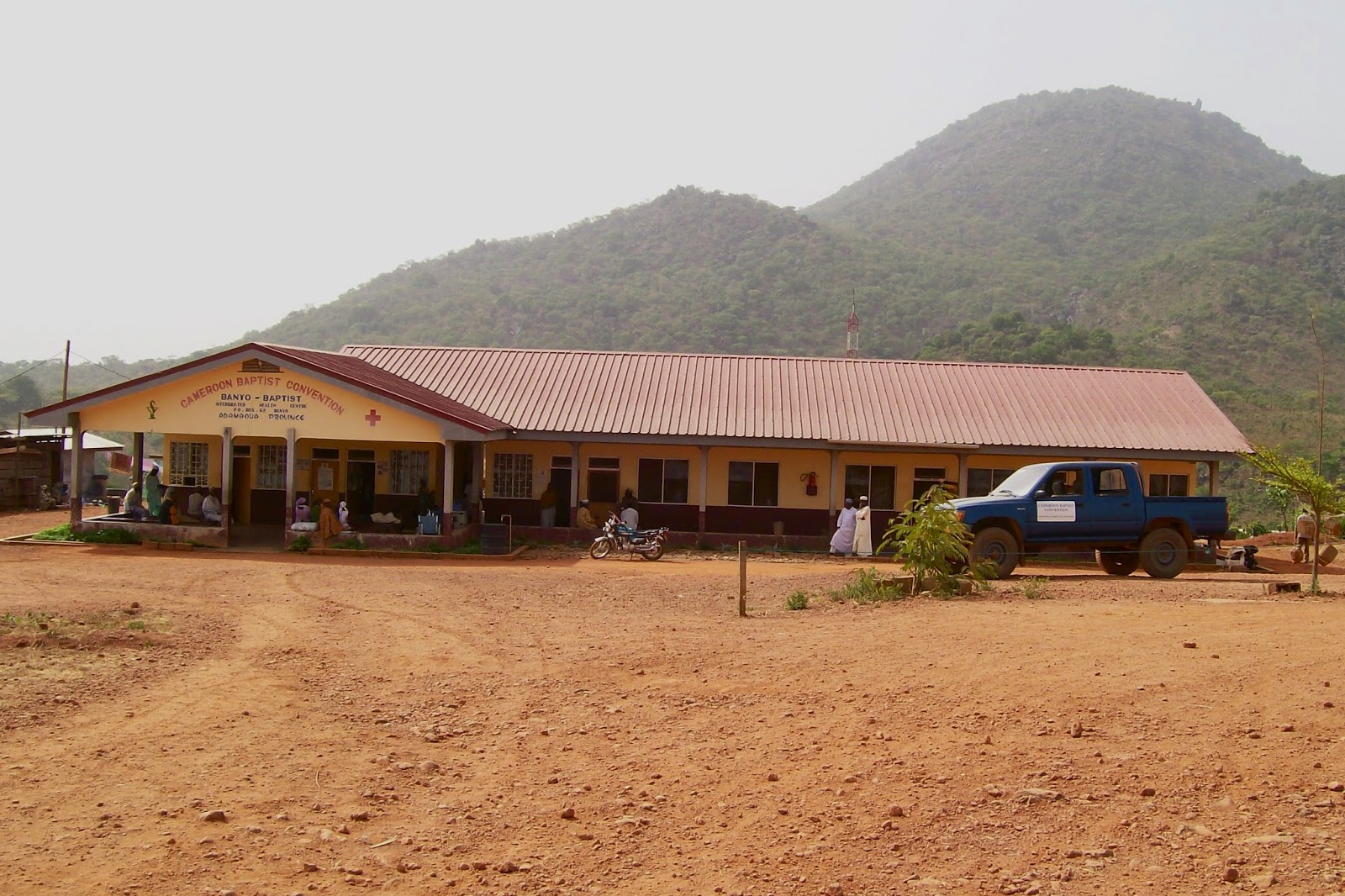It was from our front-row view on our trip to Bani that we first saw the assortment of women and children who'd seemingly appeared out of nowhere as we came round the bend. Their brightly colored clothes were a stark contrast to the dusty ground. They watched us approach, and as we parked and exited the car, more women and children emerged from the bush. They were holding small booklets - vaccination records - and waited as we unloaded the boxes and coolers that held the vaccines.
We were conducting a bush clinic in which staff from the clinic in Allat packed up supplies and drove to villages that were too far to access the clinic by foot. We drove over two hours through the bush to reach Bani that day, where we set up a mobile clinic and saw patients and dispensed medicine and gave vaccines. Along the way, we stopped twice to give vaccines to children who lived in remote places but who were able to meet us along the road as we passed. That was the routine: the women brought their children every month to meet the clinic staff alongside the road on market day, when the bush clinic came to town. Sometimes their children were due for vaccines, sometimes not. But they came every month anyway, just to make sure they weren't missing a dose.
We were impressed that families living so remotely were so determined to get their children vaccinated that they diligently trekked through the bush for hours to meet us on the side of the road and receive medicine. One mother remarked, "Since you've been coming, our children don't get sick anymore."
The clinic in Allat had been conducting these bush clinics for awhile, and after awhile the effects of the vaccinations become apparent. Their children weren't getting sick anymore, and word was spreading. By the time we had the privilege to embark on some of these bush clinics, a considerable amount of women and children were coming regularly for vaccines. They were being healed before sickness could even set in.
When John the Baptist sent his disciples to ask Jesus if He was the Messiah, Jesus was in the middle of curing many who had diseases, sicknesses and evil spirits, and giving sight to many who were blind (Luke 7:18-21). When John's disciples reached Jesus and asked Him their question, Jesus said this: "Go back and report to John what you have seen and heard: The blind receive sight, the lame walk, those who have leprosy are cured, the deaf hear, the dead are raised, and the good news is preached to the poor" (7:22). In other words, Jesus' healing ministry was a sign that He was the Messiah.
When Jesus later sent out the seventy-two, He said, "When you enter a town and are welcomed, eat what is set before you. Heal the sick who are there and tell them, 'The kingdom of God is near you'" (Luke 10:8-9). In other words, healing the sick is equivalent to the kingdom of God advancing.
When Jesus went through towns and villages, He spent time "teaching in their synagogues, preaching the good news of the kingdom and healing every disease and sickness" (Matthew 9:35). In other words, healing was just as important to His ministry as teaching and preaching the good news.
In other words, healing the sick was a main focus of Jesus' ministry. That is why we feel strongly that healing is not just a gateway to evangelism. Healing IS the ministry of Jesus, in and of itself.
All ministry should attempt to be holistic, which is why healing should go hand in hand with teaching and preaching, but not because it's a means to an end. Healing is not a lesser ministry than evangelism or church planting or discipleship or [fill in the blank]. It is a ministry of Jesus, period.
Healing brings hope.
Healing restores life.
Healing brings the kingdom near.
Thanks be to God for being the source of all healing. Thanks be to God that an ever-growing number of children in the African bush "aren't getting sick anymore." And thanks be to God for bringing His kingdom near!
Banyo Baptist Hospital






